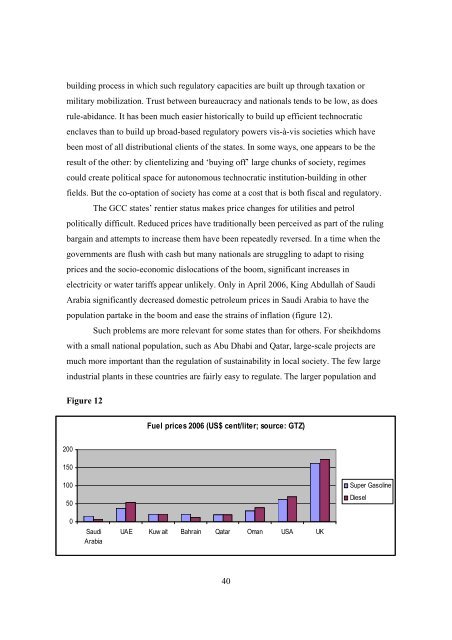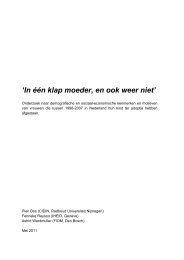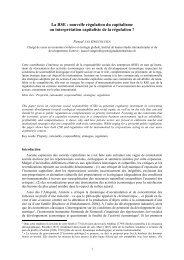PDF - Graduate Institute of International and Development Studies
PDF - Graduate Institute of International and Development Studies
PDF - Graduate Institute of International and Development Studies
Create successful ePaper yourself
Turn your PDF publications into a flip-book with our unique Google optimized e-Paper software.
uilding process in which such regulatory capacities are built up through taxation or<br />
military mobilization. Trust between bureaucracy <strong>and</strong> nationals tends to be low, as does<br />
rule-abidance. It has been much easier historically to build up efficient technocratic<br />
enclaves than to build up broad-based regulatory powers vis-à-vis societies which have<br />
been most <strong>of</strong> all distributional clients <strong>of</strong> the states. In some ways, one appears to be the<br />
result <strong>of</strong> the other: by clientelizing <strong>and</strong> ‘buying <strong>of</strong>f’ large chunks <strong>of</strong> society, regimes<br />
could create political space for autonomous technocratic institution-building in other<br />
fields. But the co-optation <strong>of</strong> society has come at a cost that is both fiscal <strong>and</strong> regulatory.<br />
The GCC states’ rentier status makes price changes for utilities <strong>and</strong> petrol<br />
politically difficult. Reduced prices have traditionally been perceived as part <strong>of</strong> the ruling<br />
bargain <strong>and</strong> attempts to increase them have been repeatedly reversed. In a time when the<br />
governments are flush with cash but many nationals are struggling to adapt to rising<br />
prices <strong>and</strong> the socio-economic dislocations <strong>of</strong> the boom, significant increases in<br />
electricity or water tariffs appear unlikely. Only in April 2006, King Abdullah <strong>of</strong> Saudi<br />
Arabia significantly decreased domestic petroleum prices in Saudi Arabia to have the<br />
population partake in the boom <strong>and</strong> ease the strains <strong>of</strong> inflation (figure 12).<br />
Such problems are more relevant for some states than for others. For sheikhdoms<br />
with a small national population, such as Abu Dhabi <strong>and</strong> Qatar, large-scale projects are<br />
much more important than the regulation <strong>of</strong> sustainability in local society. The few large<br />
industrial plants in these countries are fairly easy to regulate. The larger population <strong>and</strong><br />
Figure 12<br />
Fuel prices 2006 (US$ cent/liter; source: GTZ)<br />
200<br />
150<br />
100<br />
50<br />
Super Gasoline<br />
Diesel<br />
0<br />
Saudi<br />
Arabia<br />
UAE Kuw ait Bahrain Qatar Oman USA UK<br />
40




